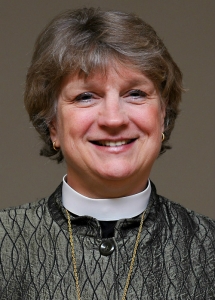 By Bishop Ann Svennungsen
By Bishop Ann Svennungsen
Christ is Risen!
Wherever you gathered last Sunday – masked and socially distanced in the sanctuary, on folding chairs in the church parking lot, at home on zoom – I pray the Easter Gospel came through loud and clear: Jesus Christ, crucified and risen for the sake the of the world.
This is the central affirmation of the Christian faith, the hope on which we stand.
Luther’s theology grounds us deeply in this resurrection hope. But, sometimes I wonder if Martin Luther’s central question – “How can I please a righteous and wrathful God?” – is still the question we bring to Easter morning.
“Our fear may not be of a wrathful God. Our fear may be that we are simply not worthy, lovable, good.”
In his remarkable Fosdick Lecture at Augsburg University, David Lose explores this wonderment with incredible clarity and depth.
Though we may not be as worried about pleasing an angry God, Lose argues, “we’ve never been under more pressure to prove our worth.” The combination of “inadequacy marketing” (consistent messaging that says we are not acceptable unless we purchase something to make us so) and the omnipresence of social media (that can bring the need for affirmation to minute-by-minute fervor) are tools of a world asking us to “prove our worth.”
WHAT SURPRISED ME was the third in his list of such pressures: the politics of division. In Lose’s words: “There is an incredibly toxic force … that has come up in a new way … that seeks to pit us against anyone who looks differently, believes differently, thinks differently, and votes differently. … [It] invites us to craft an identity that is not helpful, but always in opposition. It’s more important to know who you’re not and who you’re against, than who you’re for.”
Given such forces, Lose argues that “the pressure to justify ourselves whether by possessions or beauty or wealth or power has never been greater … to our detriment and to that of others.” Lose punctuates this thought with a marvelous quote from Dietrich Bonhoeffer: “Self-justification and judging go together, as justification by grace and serving others go together.” (emphases mine)
“Though we may not be as worried about pleasing an angry God, Lose argues, ‘we’ve never been under more pressure to prove our worth.’”
So, what is the question we bring to Easter? Am I good enough? Worthy enough? What is the question you bring?
It may not sound exactly like Luther’s. Our fear may not be of a wrathful God. Our fear may be that we are simply not worthy, lovable, good. And, the Easter Gospel speaks exactly to that. Grace, Justification, the Good News are, in Lose’s words, “God’s declaration that we are loved and accepted and declared worthy and holy.”
Baptized into this identity, joined to Christ’s death and resurrection, we are declared “good,” and freed to love and serve our neighbor.

